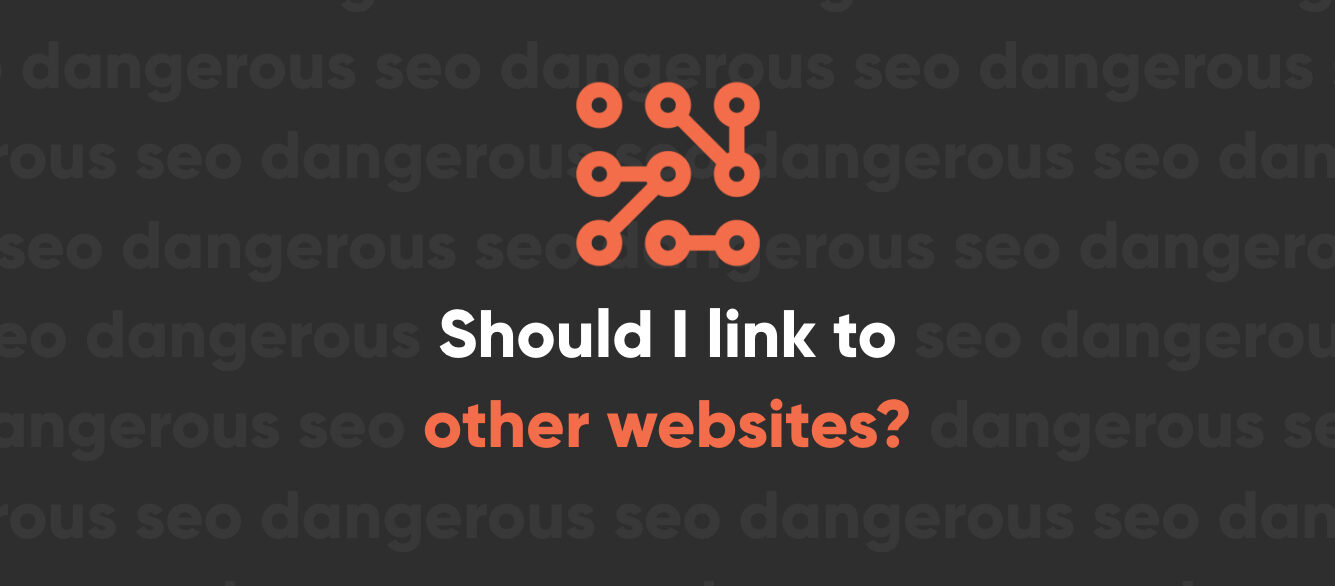
Should I Link to Other Websites?

Our clients often receive requests from other websites to post a link. Typically, these requesters aren’t trying to sell anything. They’re simply asking for a reciprocal link: if you link to us, we’ll link to you.
If you have a website, there’s a good chance you’ve received requests like this before. Many of them seem rather innocent or even like legitimate efforts to partner with you. However, others seem downright dirty. The big question here is whether or not you should link to any of these other sites.
The State of Reciprocal Links
Reciprocal links are a point of contention in the SEO community. Some SEOs swear by them and have built entire business models around them. Others think they have no impact whatsoever and are simply a waste of time. A third group claims they can only lead to Google penalties. If you ask three SEO experts about reciprocal links, there’s a good chance you’ll get three completely different answers.
But reciprocal links shouldn’t just be looked at from a search ranking perspective. There’s a much bigger issue here. If you are posting a link to another website on your own site, then you are essentially endorsing that website. You’re telling your visitors, “Hey, do you like our services? Then check out this great website, too!” In other words, your business is recommending that website to your own customers. .
This past week, Google actually released a statement that you should never ask for links. This was hardly a surprise given the search engines stance on link spam. A day later though, they clarified their position, saying you should never ask for links that violate their webmaster guidelines. Well, that’s a somewhat nebulous area, especially since it’s unclear how Google could ever know your intentions for building a link. Maybe you’re building that link in a logical and natural way that will reflect an actual partnership. Google may still interpret the link as trying to game their algorithm and slap both websites with a penalty. That puts any link building in a pretty big gray area. Link building is a tough business, and you have to be careful what you’re doing.
Should You Ever Link to Other Websites?
When someone asks you for a link, you need to think long and hard before you decide to actually accept their request. Naturally, there are a few situations that should make you instantly turn them down:
- The request specifically mentions improving Google rankings
- Their website looks unprofessional or spammy
- You don’t value their services or products
Assuming the website passes all those tests and you’re considering the link request, you should approach it without the search engines in mind. Instead, you should ask yourself these two questions:
- Will this link be beneficial to my customers?
- Will this link be beneficial to our business?
In order for the link to benefit you or your customers, there needs to be a logical reason for the link to exist. Let’s say you’re in the wedding planning business. If a specific wedding vendor requests a link, it might make sense for you to take them up on a reciprocal link offer. The key word here is might. Obviously there are other factors to consider before you run and post the link. The most important factor is this: would you actually want your customers to use this vendor? If the answer is no, then you should politely turn down the request.
Let’s look at a more concrete example. As a Minneapolis web design company, we might receive a link request from an internet marketing company that doesn’t do web design. In their request, they may suggest some sort of partnership--they’ll send us qualified leads from their marketing clients that need new websites. For a moment, let’s ignore the fact that we also provide internet marketing services and pretend both of us could benefit from this partnership. On the surface, there is certainly some logic behind this. It’s not like a payday loans or cheap Viagra website is asking for a link. There is an obvious overlap (every website needs good design, and every website needs to be marketed correctly). But is that overlap enough to form that partnership and grant that link?
If we’re considering this link exchange, we’ll want to find out everything we can about this other company first. We would want to make sure they have a high-quality website and that they seem like a professional and respected company. If their site looks like it was last updated in 2003 or if they have a bunch of bad reviews, we’re definitely not going to do it. We’d also want to think about their clientele. If they are selling $99 blackhat link building services, then it definitely would not benefit us to link to them. A business looking for cheap SEO is not our target audience.
But even if the suggested partnership looks great on all levels, we still might not link to them. We also need to consider whether or not we need the leads. And we have to think about whether or not we actually believe they’ll send us any leads. In most cases, if someone emails you out of the blue and asks for a link, there probably isn’t going to be enough justification to form that partnership.
Final Thoughts on Links
Linking to other websites in itself isn’t a bad thing. Neither is reciprocal link building. It all comes down to the intentions. If you’re doing it solely to boost your search rankings, then forget it. It’s not worth the risk. The only links you should post on your site should be relevant to your customers. When you post a link, you should be thinking to yourself, “I want my customers to see this.” If you don’t want your customers to go to that site, there’s no reason to link.
Before posting any links on your site, make sure they provide visitors to your website with helpful information or some other worthwhile experience. Otherwise, the link is pointless at best and possibly even toxic. Would you really want to risk your business because some company you’ve never heard of sent an unsolicited email suggesting that linking to each other might boost your results in Google? I would hope not.
This post is part of Internet Marketing Mysteries, a weekly column addressing actual client questions related to SEO, analytics, website best practices, and any other topic connected to internet marketing. Have a question you’d like to see tackled in a future post? Let us know in the comments.

Nate Tower
Nate Tower is the President of Perrill and has over 12 years of marketing and sales experience. During his career in digital marketing, Nate has demonstrated exceptional skills in strategic planning, creative ideation and execution. Nate's academic background includes a B.A. with a double major in English Language and Literature, Secondary Education, and a minor in Creative Writing from Washington University. He further expanded his expertise by completing the MBA Essentials program at Carlson Executive Education, University of Minnesota.
Nate holds multiple certifications from HubSpot and Google including Sales Hub Enterprise Implementation, Google Analytics for Power Users and Google Analytics 4. His unique blend of creative and analytical skills positions him as a leader in both the marketing and creative worlds. This, coupled with his passion for learning and educating, lends him the ability to make the complex accessible and the perplexing clear.



